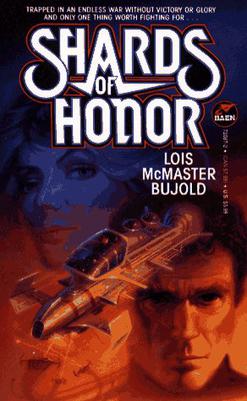 I started and chucked several reviews to this book that either went on wild tangents – the kind I could never hope to come back from – or rolling into sounding a ton more negatively about this book than I actually feel. I think I’ve finally figured out what my problem is, and in order to get this across, I will now go on a tangent, one I hope I can come back from.
I started and chucked several reviews to this book that either went on wild tangents – the kind I could never hope to come back from – or rolling into sounding a ton more negatively about this book than I actually feel. I think I’ve finally figured out what my problem is, and in order to get this across, I will now go on a tangent, one I hope I can come back from.
I had a really great evening last night. One of my oldest friends invited over a collection of her female friends. Most of these women I had never met before, except for one, who apparently went to the same high school as I, but I only vaguely remember her. We all told stories, drank wine, and ate some of the most excellent cookies of my acquaintance. It wasn’t earth-shattering; we didn’t solve the world’s problems or say anything particularly meaningful – although I did get to have a freak-out about another girl from my high school who right now, as I type, is correcting people to pronounce my name wrong – it’s ker-ID-wen, you bitch, not CARE-id-wen, and quit telling people different – and I always like to complain about her. But the really enjoyable part of the evening, for me, was driving home and realizing that 15 years ago, such an event – going to someone’s house to gab with women I didn’t know – would have left me in shuddering terror. I’ve outgrown my adolescent social terror. This is not to say I won’t continue to be socially awkward, because I am and I will, or that I won’t also contemplate on my drive home all the stupid things I said, and rue them, because I did and shall.
This book is like this experience in two ways. First, it’s better experienced than re-told, like most good times. I focused more on the food than the conversation in my little anecdote, because it’s easier to talk about the concrete than it is on the more ephemeral qualities of good conversation and good people – how can I get across to you that a little mini-conversation about the problems of bread-making slipped into a little moment of reverie about Grandma Dory and her Swedish Limpa recipe, which, only for a second, transported me to the smell of her basement and the baskets of onions and potatoes on the shelf? But then the conversation moves, and I hear an anecdote about bakeries in LA, which is shared with other memories of the city for other women in the circle. There’s a lot of incidental in Shards of Honor – an alien planet with weird floating vampire jellyfish, the shape and texture of space ships, the politics of two worlds and two lives that are told anecdotally between two people.
A lot happens in Shards of Honor, from running about on an alien planet, to mutinies on space ships, gun battles, politics, torture, crazy people, sane people. Just…stuff. Cool stuff. Space opera stuff. But the real thing I enjoyed, the thing I dug, was the relationship between Cordelia and Vorkosigan. I don’t feel like I can bear down on this too hard, whatever that means, because their growing understanding is something interstitial, unspoken, something that unfolds quietly at the edges of action. They’re grown-ups – which is how I think my bs anecdote relates in another way – they have gotten over the flailing self-involved panic of youth, but that doesn’t mean that they get everything right or stop worrying about all the stuff they don’t get right.
There’s some off-notes to this book – it skips around too much, and maybe it has too many endings – although the last ending, the one that is an unrelated vignette of a salvage ship recovering the bodies vented into space during one of the space battles has a melancholy empathy I really grokked. But it was enjoyable, something I look forward to reading again, the kind of story that lends itself to re-reading not because it blows your mind, but because it is familiar in a way that belies all of the space opera and scifi accoutrement. Two people tell each other stories, and in that telling, they find understanding, and understanding is the house of love.